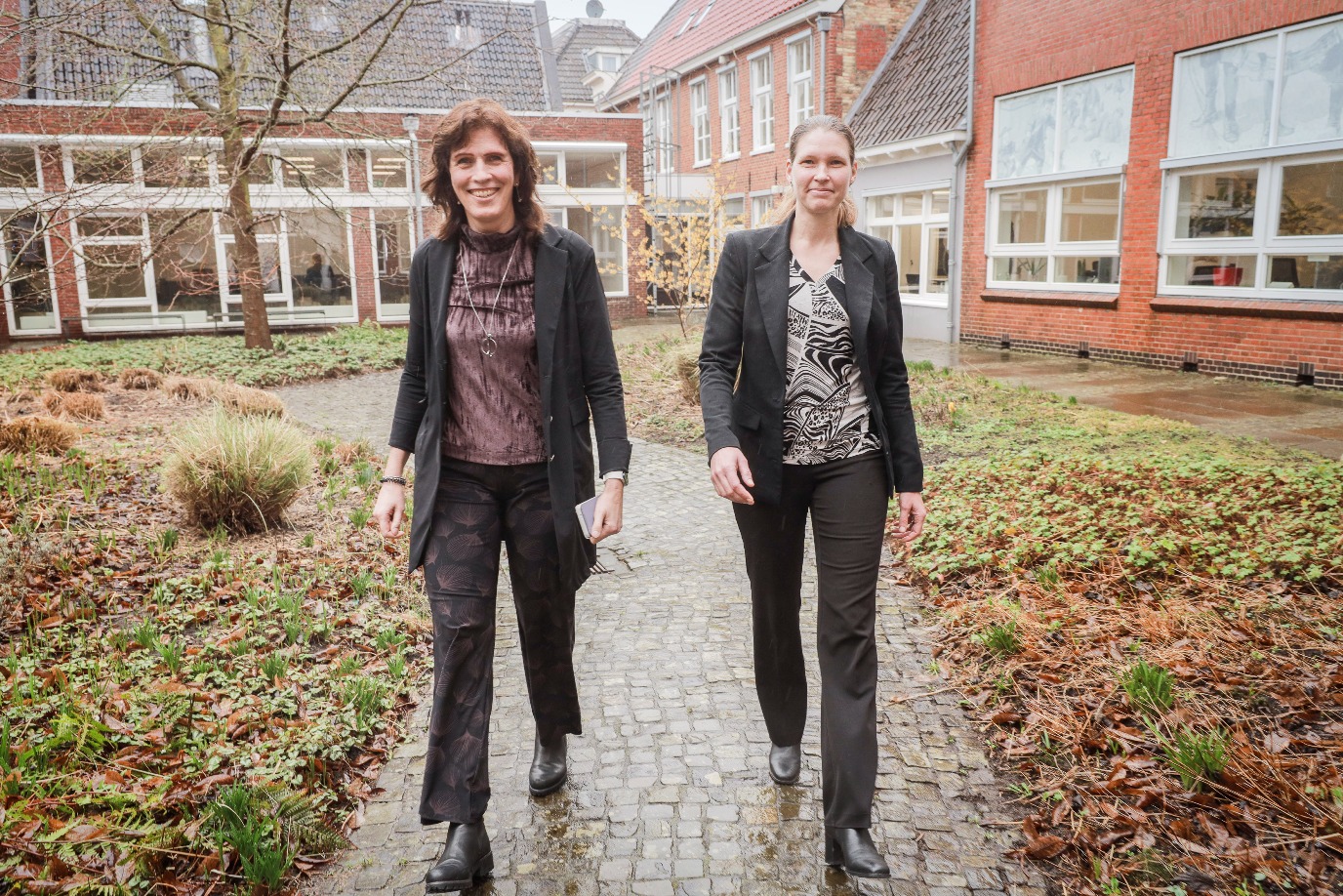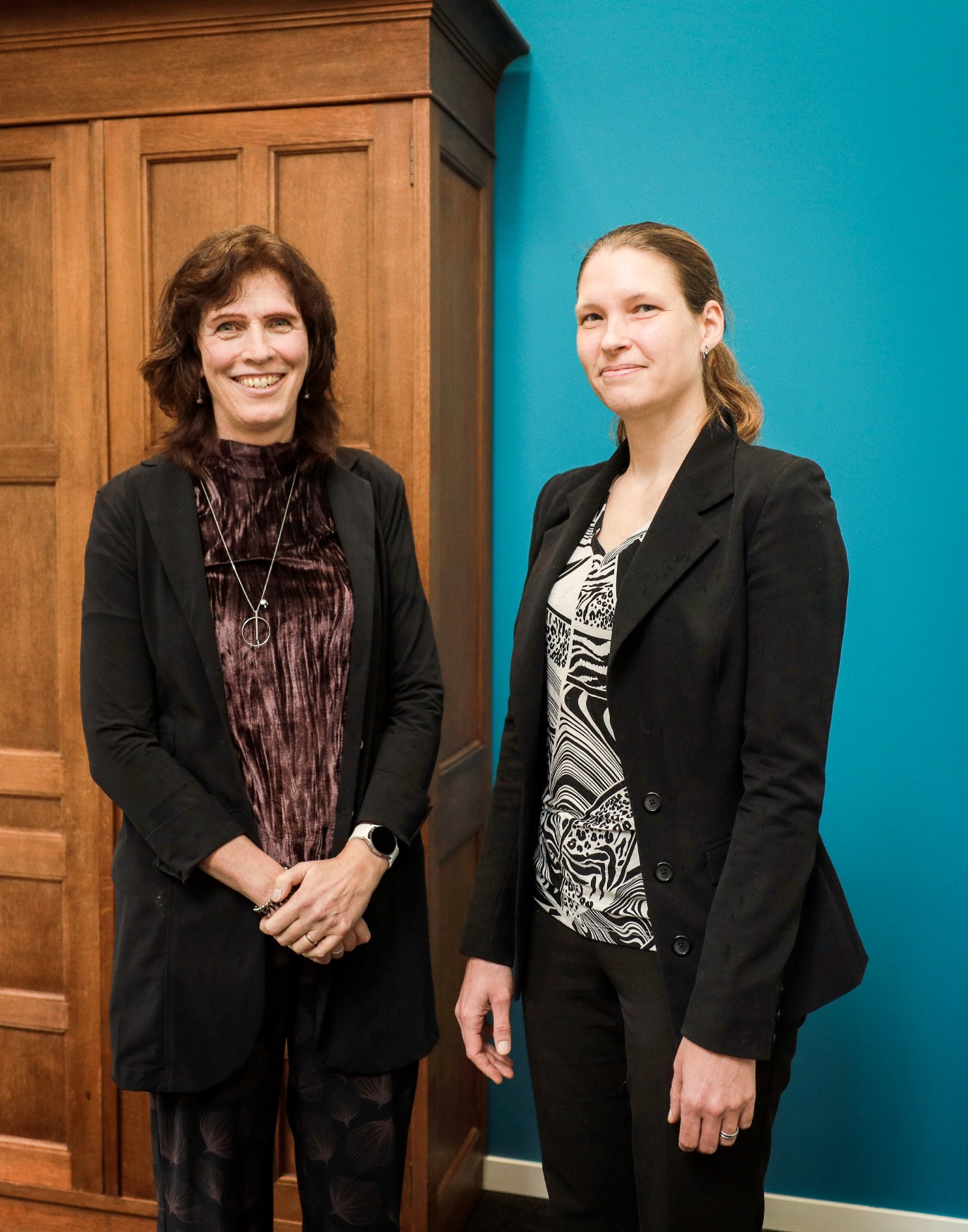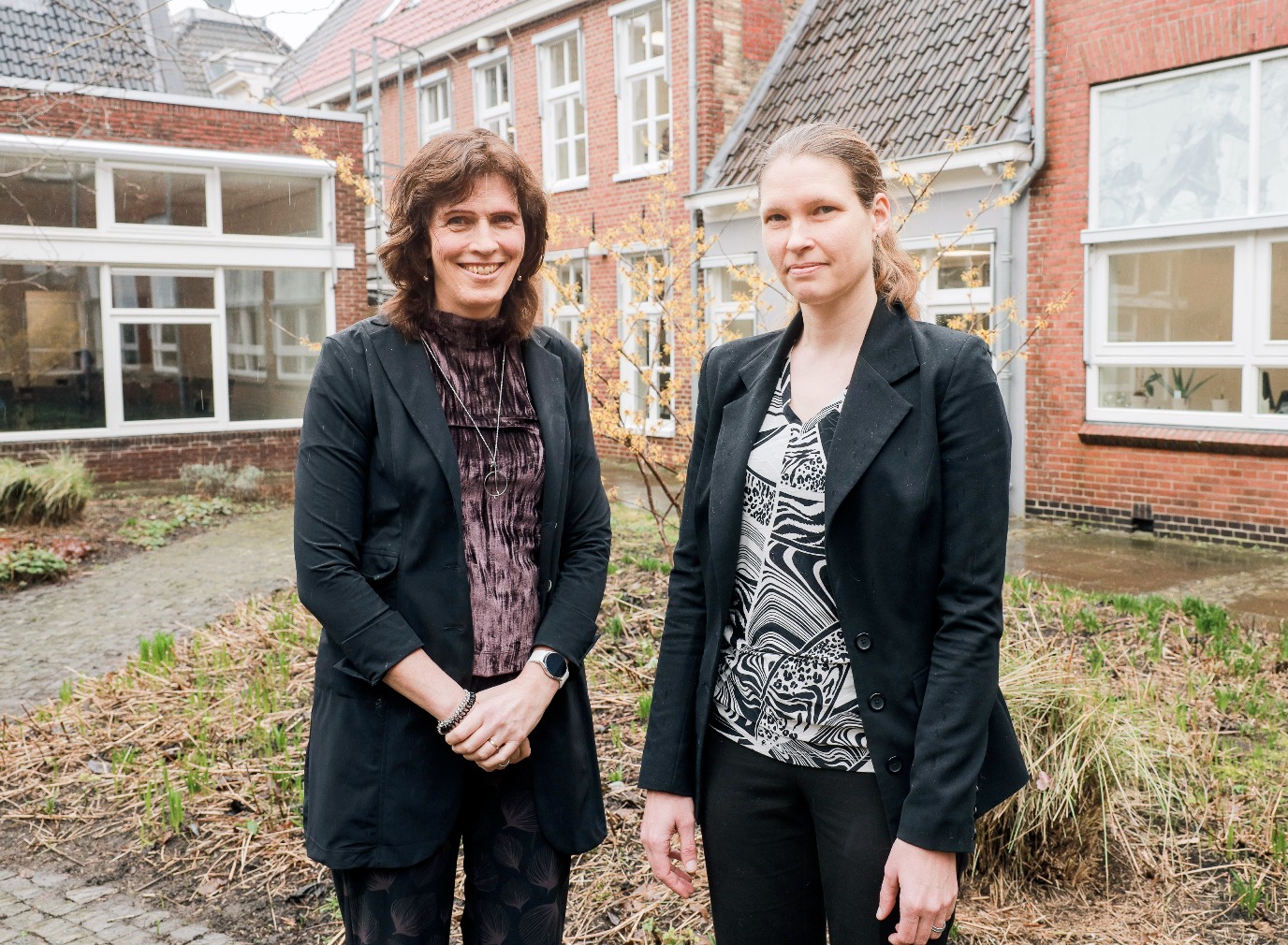‘But, is she fun then, if she studies maths?’
In the Netherlands, girls are significantly less likely to study a technical degree programme. This is a real shame, because research shows that girls are perfectly capable of studying such subjects, and there is an acute shortage of talented professionals in the technical sector. Ahead of International Women’s Day, Rector Magnificus Jacquelien Scherpen – herself a successful woman in the technical sector – and educational expert Hanke Korpershoek talk about making choices, skewed standards and solutions to combat the leaky pipeline.
Text: Riepko Buikema and Marrit Wouda. Photo's: Henk Veenstra
Ridiculous comment
‘I might want to study maths, what do you know?’, said Jacquelien Scherpen to her student dean at secondary school. She blurted it out when he suggested she might be better off studying German. ‘It was the first time I had ever said that. I hadn’t really thought about it before, but I thought what he said was so ridiculous. If someone tells me I can’t do something without giving clear arguments, I apparently have the tendency to push back and do the opposite.’
She eventually chose to study Applied Mathematics at the University of Twente, where she was one of 17 women out of 80 students. ‘It wasn’t too bad; I wasn’t the only one. But my then boyfriend – now husband – was often asked whether I was actually fun, given that I studied maths. People automatically assumed I wasn’t sociable. I often felt that I had to prove that I was normal too. And I had to do that more than the boys did.’

Teamwork
Scherpen’s story is a very relatable one, says Hanke Korpershoek. ‘We seem to think that it’s very important for women to be sociable, and we often think that people in STEM professions are not. Maybe it’s because you don’t work with people, as you do in healthcare, for example. Of course that’s not true, because even in technical fields you work in teams.’ Scherpen: ‘In fact, one of the strengths of our broad-based university is that engineering students learn to work with students from other disciplines.’
Nothing too difficult
Scherpen recalls another anecdote about harmful biases in our education system. Scherpen: ‘The son of an acquaintance – a leading woman in the ICT sector no less – was recommended to take Mathematics B. Two years later, her daughter, who had the same final grade and the same teacher, was recommended to take Mathematics A.’ And why, you may be wondering? Because that would be a bit easier for her. ‘These are pretty dangerous recommendations,’ says Korpershoek. ‘Telling girls that Chemistry, Physics or Mathematics B are difficult subjects and that they would be better off choosing something else has a huge impact. Especially on pupils who may already be struggling with self-doubt.’

Underutilized talent
Ability tests for abstract reasoning and symbolic intelligence also show that girls are at least as good as boys in these areas. ‘In STEM subjects, girls have much more underutilized talent than boys. The argument that they are less capable when the time comes to choose their study path is just complete rubbish.’ Korpershoek laments the fact that in the Netherlands we do not seem to be able to create an environment for young people in which they feel free to choose the path that suits them best. Or at least to explore their preferences.
Do what’s expected? No, change the norm!
One thing is clear: in the Netherlands, choosing to study a STEM subject is no mean feat, especially for girls. Not everyone is like Scherpen when she was young, rebelling against biased advice. ‘At that age, every child is very sensitive to what their environment, their peers, and their parents think. In Turkey, for example, it’s much more normal for girls to do a technical degree programme,’ says Korpershoek. Such attitudes are deeply ingrained, and if we want to change them, schools have a huge job on their hands to educate pupils and their parents.
‘You have to start in primary school,’ says Korpershoek. ‘Because by the time girls start secondary school, they have often already ruled out certain careers. Choose role models who are close to the students; not a woman who has been working in the profession for years, but a girl from the final year who has chosen to study chemistry and is passionate about it.’ The researcher also proposes another option: practical lessons for HAVO and VWO pupils. ‘These give pupils the chance to do more with their hands and can strengthen the connection to technical programmes.’

Leaky pipeline
Unfortunately, increasing the number of women enrolled in technical degree programmes alone is not enough. ‘If you’re a minority on a particular degree programme, you have to be very determined to stick to the path you have chosen,’ says Korpershoek. Because the technical sector is struggling with a leaky pipeline; a relatively high percentage of girls who study technical subjects do not end up working in the sector or leave after only a few years.
Employers need to create an environment where women feel comfortable and where their presence is normalized. The more women you have in your organization, the less they have to represent their entire gender. Scherpen: ‘Be relentless in making sure that the women you appoint are working to a very high standard. If a woman makes a mess of things, people are very quick to say, “Ah, well, we knew that would happen”. But men are also able to mess up.’
All hands on deck
According to Scherpen, a former Captain of Science in the High-Tech Systems and Materials (HTSM) top sector, women need to make up 30% of the technical workforce to make a real difference. In fact, to overcome the negative effect of the exodus from the sector, you need at least a 40% share of women to start with. ‘We are faced with immense challenges: in healthcare, in energy and the climate, in digitization, and in construction. Technical fields are at the heart of all these sectors. We need everyone to contribute to the solutions. If we ignore half of the Dutch population from the outset, we’ll be fighting a losing battle.’
| Last modified: | 15 November 2024 11.20 a.m. |
More news
-
24 March 2025
UG 28th in World's Most International Universities 2025 rankings
The University of Groningen has been ranked 28th in the World's Most International Universities 2025 by Times Higher Education. With this, the UG leaves behind institutions such as MIT and Harvard. The 28th place marks an increase of five places: in...
-
05 March 2025
Women in Science
The UG celebrates International Women’s Day with a special photo series: Women in Science.
-
16 December 2024
Jouke de Vries: ‘The University will have to be flexible’
2024 was a festive year for the University of Groningen. In this podcast, Jouke de Vries, the chair of the Executive Board, looks back.
